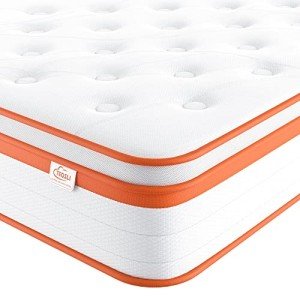The Ultimate Guide to Memory Foam Beds: Comfort and Considerations
Memory foam beds have actually transformed the sleep industry, supplying unparalleled support and comfort that guarantee a relaxing night's sleep. This article dives into the many advantages of memory foam mattresses, essential factors to consider for possible buyers, and answers often asked concerns about this popular bed linen option.
Comprehending Memory Foam
Memory foam, initially developed by NASA in the 1960s, is a viscoelastic material that complies with the shape of the body when pressure is applied. The foam then returns to its original shape once the pressure is launched. This distinct particular provides several benefits for those seeking better sleep quality.
Secret Characteristics of Memory Foam
| Characteristic | Description |
|---|---|
| Viscoelastic | Softens in reaction to body heat and weight, providing personalized support. |
| Pressure Relief | Distributes body weight evenly, minimizing pressure points and possible pain. |
| Durability | Generally lasting, with numerous mattresses lasting over a decade when looked after appropriately. |
| Motion Isolation | Absorbs motion, making it a perfect choice for couples, as one partner's motions are less most likely to interrupt the other. |
| Hypoallergenic | Typically resistant to allergens such as dust mites and mold, making it ideal for allergy sufferers. |
Benefits of Memory Foam Beds
Memory foam beds offer numerous advantages that can improve sleep quality and overall wellness. Here are a few of the most compelling advantages:
- Enhanced Comfort: Memory foam molds to the body, supplying individualized comfort that eases pressure points.
- Back Support: The material's capability to shape assists in preserving a neutral spinal column during sleep, which can significantly reduce neck and back pain.
- Lowered Motion Transfer: Memory foam's distinct residential or commercial properties soak up movement, making it an exceptional option for light sleepers and couples.
- Temperature level Regulation: Many memory foam mattresses now include cooling innovations that assist manage temperature level throughout sleep, combating the heat retention typically related to conventional memory foam.
- Long Lifespan: With correct care, memory foam mattresses can last upwards of 10 years, offering excellent value for money.
- Range of Options: Available in different firmness levels, densities, and thicknesses, memory foam mattresses accommodate diverse sleeping preferences.
Factors to consider When Choosing a Memory Foam Bed
While memory foam beds have numerous advantages, they might not be for everybody. Here are some factors to think about when making a purchase:
- Firmness Level: Memory foam mattresses been available in different firmness levels. Think about individual preference and body weight, as much heavier people might need firmer choices for adequate assistance.
- Heat Retention: Traditional memory foam can trap heat. Try to find models with the most current cooling technologies or aerated styles if temperature level of sensitivity is an issue.
- Smell: Some memory foam mattresses give off a noticeable odor upon unboxing, often referred to as "off-gassing." This smell usually dissipates within a few days.
- Weight: Memory foam mattresses can be heavy and cumbersome to move. Make sure that the design of the mattress and the bed frame match your requirements.
- Cost: While memory foam mattresses are available in various rate varieties, buy a respectable brand to ensure quality and durability.
FAQs About Memory Foam Beds
1. The length of time does a memory foam bed last?
- With appropriate care, memory foam mattresses can last anywhere from 7 to 15 years, depending on the quality and use.
2. Are memory foam mattresses helpful for side sleepers?
- Yes, memory foam mattresses are often suggested for side sleepers due to their ability to eliminate pressure on the shoulders and hips.
3. Can I flip my memory foam mattress?
- Many memory foam mattresses are created to be one-sided and ought to not be turned. Routine rotation is suggested to promote even use.
4. Do memory foam mattresses make you hot?
- Conventional memory foam mattresses tend to keep heat, however lots of contemporary styles include cooling gel layers or breathable materials to help manage temperature.
5. What is the best density for a memory foam mattress?
- Normally, a mattress density between 10 to 12 inches is advised for most sleepers, however specific choice and body weight need to assist the decision.
Memory foam beds represent a substantial improvement in sleep innovation, supplying considerable benefits such as pressure relief, motion isolation, and superior comfort. While Supportive Memory Foam Mattress is necessary to think about personal choices, potential drawbacks, and specific needs before making a purchase, many individuals discover that purchasing a quality memory foam mattress improves their sleep experience significantly.
For those still exploring their options, going to a display room or checking out various mattresses can offer vital insights. With the ideal choice, a memory foam mattress can lead to more peaceful nights and renewed mornings.

